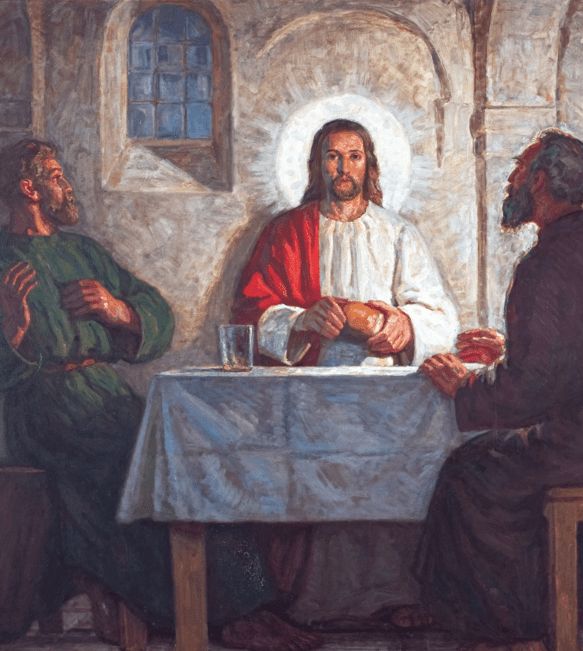I never noticed it before, but our reading from Mark’s gospel is similar to the story in John’s gospel of the wedding feast at Cana. They begin with a problem presented to Jesus: Lack of wine (John) and a place for Passover meal (Mark.) Jesus responds to both by giving orders: to the waiters (Jn) and to the apostles (Mk.) And both have miraculous changes: water into wine (Jn); bread and wine into Jesus’ Body and Blood (Mk.)
Now the wedding feast showed Jesus replacing the water used for purifying dishes with wine to bring joy to the wedding. He replaced the kosher laws with a new one, the law of love, symbolized by the feast. In our gospel today, Jesus replaces ordinary food with spiritual food. He is doing something new, beyond the requirements of the Old Testament.
What does that mean for us? Jesus is showing God’s love for us in a new way. The bread and wine at the last Supper were signs of Jesus’ body being broken and his blood poured out for us on the cross. When he gave his life for us, he rose from the dead to give us hope. And now we have the Eucharist, in which he becomes our new food and drink.
Do we really believe that the Eucharist is Jesus, the Son of God? The way to measure that is to ask, how has Jesus changed your life? Do you love others more because you know God loves you? Do you have less fear of the future, because the Holy Spirit gives you courage? Let us look forward to being renewed in spirit whenever we receive the Body and Blood of Christ.
Tom Schmidt, Diocesan Publications
Readings: The Solemnity of the Most Holy Body and Blood of Christ | USCCB


